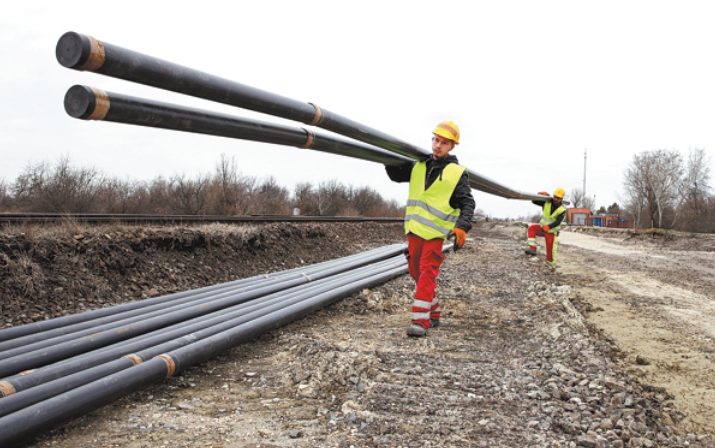BRI helping nurture links with Hungary


Cui Hongjian, director of the China Institute of International Studies' European Studies Department, said the high-level and high-quality growth of China-Hungary relations will enhance and diversify ties between China and the EU.
As bilateral political and business ties enjoy a solid foundation, foreign trade value between China and Hungary grew by 1.9 percent year-on-year to 103.49 billion yuan ($14.17 billion) in 2022, data from China's General Administration of Customs showed.
In addition to electronics, auto parts, vehicles and machinery, Hungary's exports to China include chemical and pharmaceutical products, wine and foodstuffs. China exports mainly manufacturing equipment, computers, construction machinery, trains, steel, electronics, textiles, garments and household appliances the other way.
Hungary's advantageous geographical location and mature industrial infrastructure make it a top destination for Chinese investment in Central and Eastern Europe, covering a range of sectors such as manufacturing, chemicals, finance, telecommunications, automobiles and logistics, according to information released by the economic and commercial office of the Chinese embassy in Hungary.
China's EVE Energy, a battery manufacturer based in Huizhou, Guangdong province, plans to invest about $1.18 billion in the construction of a battery plant in Debrecen, Hungary, to supply German automaker BMW Group's factory in the country. The battery cell manufacturer, the world's ninth largest, said the project will create more than 1,000 jobs for local residents.
Meanwhile, China's Contemporary Amperex Technology Co Ltd, the world's largest electric vehicle battery maker, announced last year it will invest 7.34 billion euros ($7.77 billion) to construct a battery production unit with a capacity of 100 gigawatt-hours in Debrecen to supply European automakers.
Zhou Mi, a senior researcher at the Chinese Academy of International Trade and Economic Cooperation in Beijing, said: "The notable performance of Chinese battery companies can be attributed to rising demand from major overseas consumer countries for renewable energy and new energy vehicles. Also, local companies have made great technological advancements in lithium battery manufacturing."
Zhou noted Chinese battery makers have distinct benefits in collaborating with related equipment manufacturers in both the upstream and downstream supply chain segments, and they also enjoy an advantage in pricing due to their enhanced production capacity and volume.
China's outbound direct investment has continued to expand in the first eight months of this year, particularly in economies involved in the BRI. Its non-financial ODI surged 18.8 percent year-on-year to reach 585.61 billion yuan during this period, according to the Ministry of Commerce in Beijing.

































